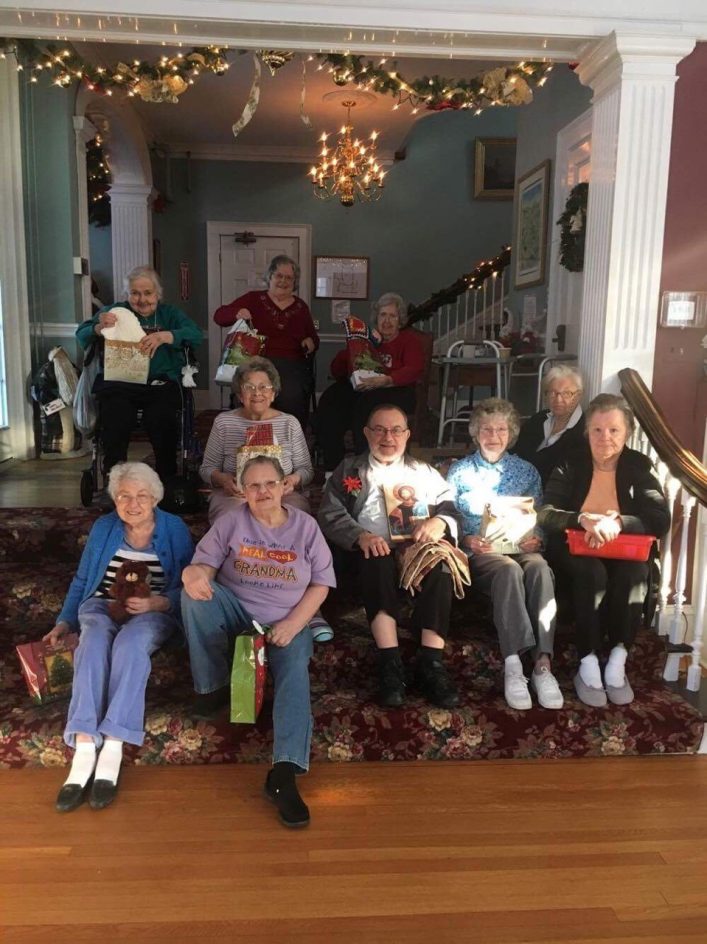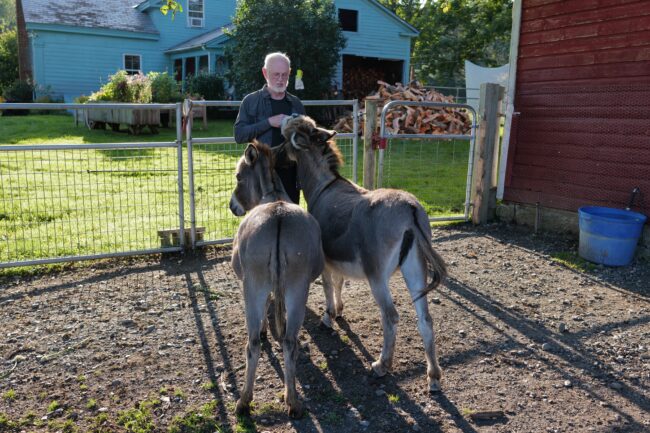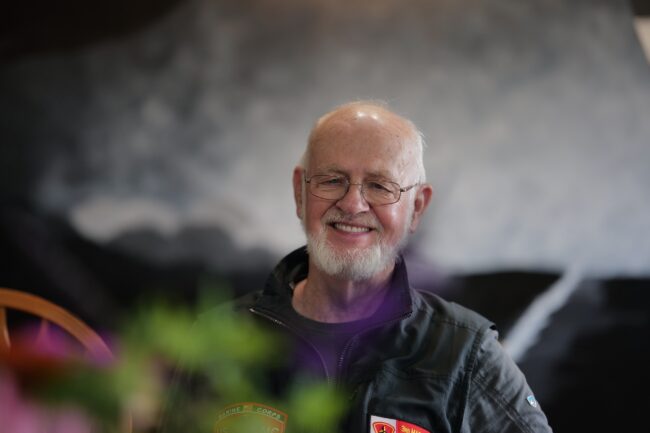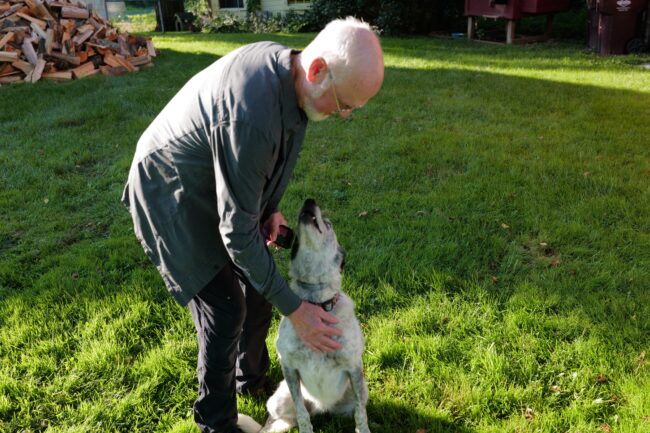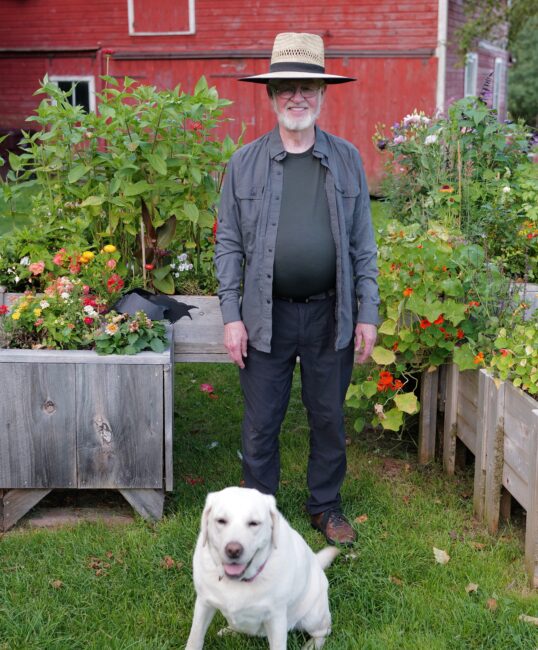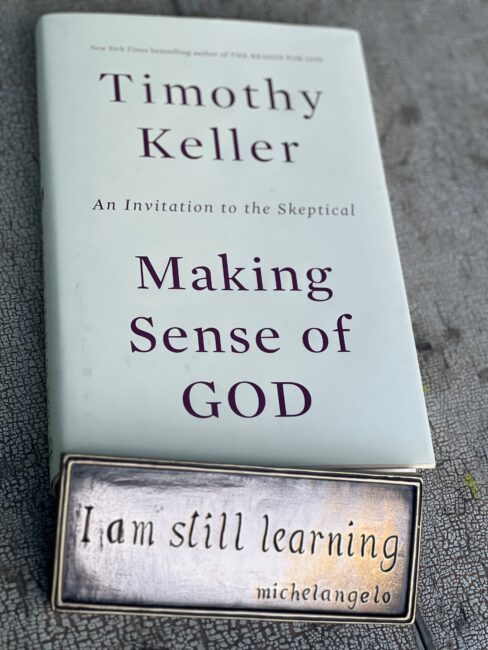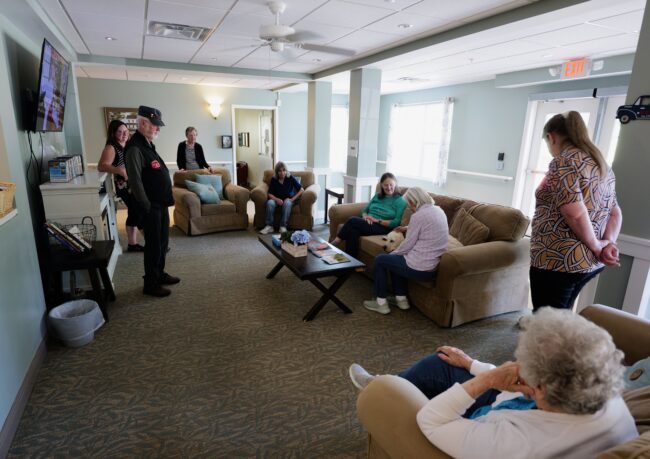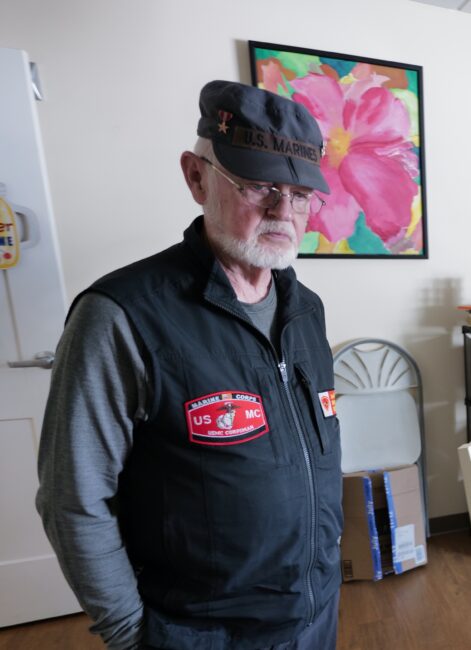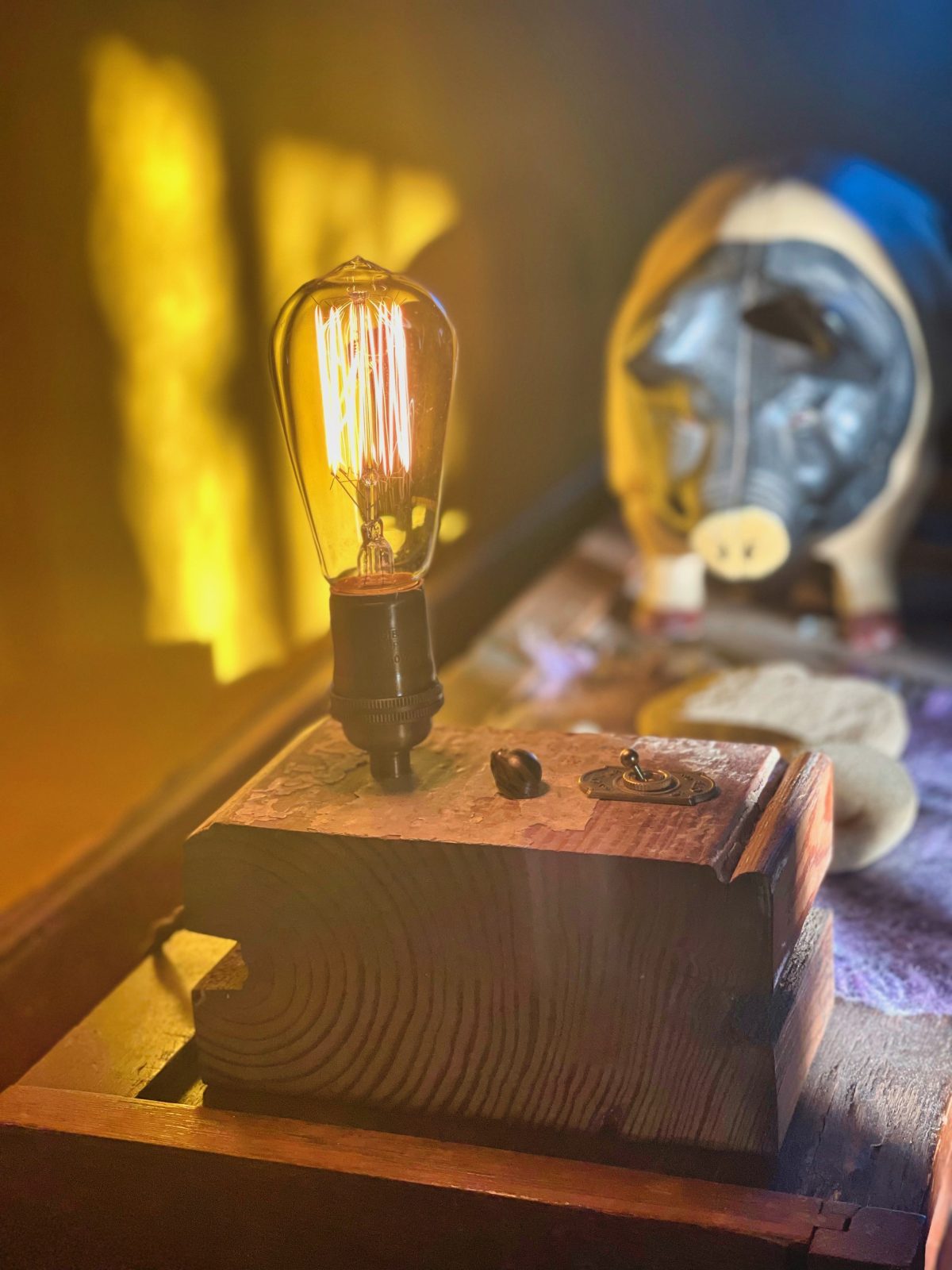“Speak the truth with those who search for it….support those who have stumbled, and extend y our hands to those who are ill. Feed those who are hungry, give rest to the weary…strengthen those who wish to rise, and awaken those who are asleep…” —
Believed to be written by the Apostle Paul.
I came across this writing in a beautiful and powerful book by Elaine Pagels, a prominent academic and school of early Christianity at Princeton University. The book is called Why Religion?
These words touch me deeply as they define the purpose and meaning I have chosen for my life in recent years. I could not have written it more clearly or meaningfully than Paul. This idea has transformed my life and brought love and hatred right to my door.
Pagels wrote the book after the death of her husband and son within a year of one another. It made me think. A lot.
Although I am not a Christian, I am a follower and student of early Christian philosophy and theology, especially the call of Christ to do good for the needy and the vulnerable. That idea was an engine that drove Christianity to be one of the most powerful forces in the world for many years.
Pagels found that her religious beliefs, often dormant or in transition, sustained her through this awful and painful time in her life.
She ended up feeling that we need religion or something very close to it to get our balance and souls back. And to strive to treat each other kindly and gently.
This is an awkward but timely piece for me to be writing at the moment since I belong to no particular faith (I became a Quaker when I was a teenager but no longer attend meetings), yet day by day, and coming to see and learn why we had religion in the first place and need it or something like it again.
We have no center to hang onto, nor fears or inspiration to prod us to be better and more human, no moral force to challenge or liars and cruel and dishonest politicians. T
There is no way the Christian fathers and sisters would have condoned the behavior of the hypocrites who use religion to gain political power and bludgeon opponents. You don’t need to be a scholar to know that.
I agree with Pagels. Religion is important.
I need some moral guidance and grounding in my life, a way to continue the work I care about, and stay grounded in the face of hostility, cruelty, division, and violence. And of course, love. There is always love. And sometimes I need to be challenged and pushed and corrected by people I trust and who care for me.
Religious people use to help with that.
I will also admit having had a rough week, hate-mail-wise, and was accused of everything from thievery to meddling to elitism to taking illegal photos of children and exploiting the elderly.
Committing small acts of great kindness sounds great, but it isn’t always easy. Lies travel the world in a flash, the truth takes its time.
I can’t speak to her qualifications, but I tasted what it felt like to be Ketanji Brown Jackson, the newest Supreme Court Justice during her congressional hearings. I think it took great faith for her to endure that with grace.
For a week, she was a sitting target for people who hate and lie as quickly as they breathe. It was surreal. In the world’s supposed greatest deliberate body, there was no sign of truth, mercy, kindness, or justice. There was little feeling of good, civility, or hope.
Her ordeal reminded me of just how far we are falling, like her or not.
There was no moral center or foundation. It was just like being online at times – too many times, and more all the time.
Writing in public in America in 2022 is helping me see and understand the great hole in our moral lives that was left when religion lost its place in the last half-century as a primary arbiter of morality, compassion, and decency.
“We are each our own devil, and we make this world our hell,” said Oscar Wilde.
A lot of us are making this world Hell, and the Devil seems more and more real to me with the passage of time. He has a laptop and an Ipad, at the very least, and a whole bunch of monitors in his office. He always has his earphones on, yelling at Siri.
I’ve never been able to believe in something so simple as one God and a Devil, yet when I see and read and hear the hatred, cynicism, and rage on and offline, in Congress and in my e-mail, on the news and on the streets, I can’t help but think this is what the Devil, if he ever existed, always wanted: a way to spawn hate, lies, cruelty, and suspicion instantly and universally, and without having to leave his seat or walk outside or pay for a single stamp.
When I look at the news or check my blog comments, I hold my growth, check on the spider we call social media and the news, and feel the discourse that turns ordinary people rude and hateful.
I never thought this before, but I wonder if these people went to Church Temple or mosque if they might be less angry and hateful and cruel. Didn’t most religions preach against this? I remember when rudeness was surprising and was considered…well, rude. No rudeness is a campaign funding tool.
Wasn’t Jesus better than that? The Amish are never rude.
The Internet, of course, is nothing more than a reflection of our country, and its growing sickness and cruelty is a mirror image of the world around us.
I understand that organized religion has been deeply flawed, and frequently responsible for wars, division, hatred, corruption, persecution, and sexual abuse.
I think of the Catholic Church, which has done great good for hundreds of years and, at the same time, committed and tolerated and enabled great evil. Judaism and the Muslim faith have their own troubles and failures.
Religion is in decline, almost everywhere.
Religion wasn’t impervious to the awful flows of humanity.
But the early Christians changed the world by calling for a caring and moral world for the very first time. Times have changed, but I still find their message powerful and inspiring.
It used to be a disgrace when a leader or public person was caught lying, cheating, or harming the country. Today, it seems to be an advantage.
I am not nearly as famous or essential as Judge Jackson, but I have also learned in recent years what it means to be helpless in the face of lies and hatred.
I have this feeling that the collapse of religion as a central force in our lives left a great big moral sinkhole that is being filled by people who are rushing to leave our idea of God behind and instead embrace the work of the evil we call the Devil.
The Internet is the new God, the new center of culture and learning, and our ideas about morality. It makes me miss religion.
The Devil in my mind isn’t wearing a red cape or carrying a pitchfork, he’s like to be on Facebook or Tik-Tok spreading lies and conspiracy theories and promoting hatred.
When the Church was strong, I can’t imagine a Donald Trump, an acknowledged philander, liar, and con man running for President and gaining election, then daring to lie about the first election and run for another one.
I can’t imagine a Fox News in the time of Walter Cronkite and Edward R. Murrow. And I’m not one to talk about the good old days, good old days are rarely better than the ones we have. But there was such a thing as a moral code restraining lying and overt viciousness.
Truly religious people would have risen in outrage about Donald Trump, he is enthusiastic about his immorality and made it work for him. It is his most consistent and enduring trait.
The Judeo-Christian ethic was full of holes, especially when it came to African-Americans and women, but people were afraid of defying it openly. It kept a check on the Ted Cruzs and Marjorie Taylor Greene’s of the world.
We have lost our ability to be choked or offended by immorality.
But in my life, even though I am not religious, religion also struck me as a moral force, a counterbalance, strong institutions that preached civility, compassion, and concern for the poor and the needy.
Pagels is right, I think. We need religion.
In her research, Pagels found that many people in antiquity spent enormous time and energy searching for ways to “heal the heart,” as countless people are doing today, expanding an enormously increased and growing range of chemical medications, therapeutic techniques, exercises, and support groups, as well as practices of meditation and yoga.
“What happened during our son’s illness and death, followed so soon afterward by my husband’s death, compelled me to search for healing beyond anything I’d ever imagined,” she wrote in her book.
She found in spirituality that the flaws and foibles of humans melted away and the “invisible bonds” connecting people, connecting all of us, and connecting all of us with countless others and with our world and whatever is beyond it felt more vital than ever. She was struck by the words of an ancient Jewish prayer: “Blessed art Though, Lord God of the Universe, that you have brought us alive to see this day.”
However that happens, she wrote, sometimes hearts heal through “what I can only call grace.”
Grace is an essential idea in early Christianity, it is complicated to explain, but a short definition would be the divine influence operating in individuals for their regeneration and sanctification.
I can’t claim resurrection, but I feel my life has been marked by rebirth and regeneration. Spirituality saved me too, I knew there was something better and bigger than me.
More and more, I suspect the regeneration of religion, not people, is what we need so desperately. If there is a God, and Jesus was his son, and there is a Devil, then some force, human or otherwise, will appear to lead us back to the light. If not, I just don’t know.
We’ll have to do it ourselves.
I’m ready to believe in God. I just need a push and some help.
As I work to process all of the hatred and love that I receive, all mixed together, my mind keeps going back to the gnostic writing believed to be Paul’s about he who “dwells in the light that does not fail.”
I want to believe in that God. My heart aches for it.
I want to believe in a religion that preaches honesty and truth, compassion and empathy. It is wrong to lie. It is wrong to hate. It is inappropriate to hurt. The poor need love and care. I give thanks every day to be alive.
Moral people don’t send hateful messages to strangers. They don’t hurt people just because they can. They don’t attack strangers in their homes, online or off. The truth is sacred to me. It matters. War is horrific. Somehow, it must be stopped or curbed.
People who wish to rise ought to be strengthened, and those asleep awakened. Blessed are the hungry and the needy.
I’m devoting myself to a life without hatred and argument, I haven’t found the path to that yet, but that is my goal, reawakening, regeneration, and sanctification.
These are the ideas of the founders of religion, written and preached to heal a broken and cruel world. We are once again a broken and hostile world, and we are without a moral center.
We don’t know how to treat other people and care for them.
We are losing the sense of humanity that the Christian and Jewish, and Muslim founders first introduced into the world.
I can’t say I know what the answer is, I’m just not that smart.
I like Pagels idea that none of us has suffered anything that all of us haven’t suffered in one way or another. We love. We fear. We suffer. We are one thing in that way.
That is the community that religion promised but failed to deliver.
This is the community we need to find again.
Pagels writes about the gospels, which she says engaged both head and heart, challenging us to “love your brother as your own life” while deepening our spiritual practice.
“Knock upon yourself as on a door,” wrote Thomas, ” and walk upon yourself as on a straight road. If you step on the road, you cannot get lost; and what you open for yourself will open.”
Faith as we know it was an attempt to humanize a brutal world and bring a moral structure into the world.
“Let the one who seeks not stop seeking until he finds, and when he finds, he will be troubled,” wrote Thomas, “when he is troubled, he will be astonished.”
Where to start? There is another saying from the Gospel of Thomas; “Recognize what is before your eyes, and the mysteries will be revealed to you.”
I’m in.
